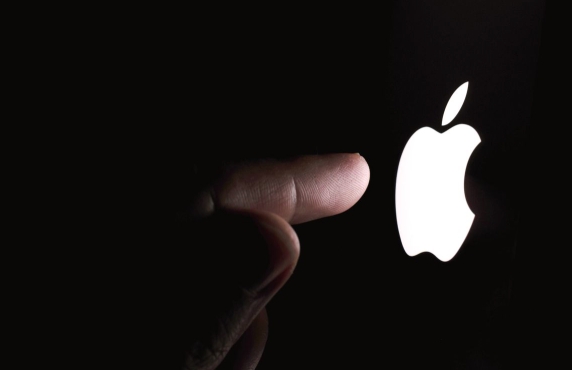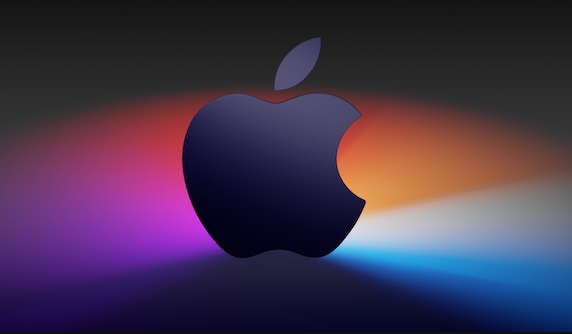There are three ways to set an alarm or timer on a Mac: one is to create event reminders using the calendar application, the other is to create a timer for timed playback of sounds in combination with Automator and terminal commands, and the third is to obtain richer functional support through third-party applications such as TimerTab, Alarmy, and Timeless. Users can choose the most suitable solution according to their needs.

Setting an alarm or timer on a Mac isn't as straightforward as it is on iOS devices, but it's still totally doable. macOS doesn't have a built-in app specifically for alarms or times like Clock on iPhone, but there are several workarounds using native tools and third-party apps.

Use Calendar to Set an Alarm
One of the simplest ways to set an alarm on your Mac is by using the Calendar app — it's built in and easy to use.
- Open Calendar (you can find it in Applications or via Spotlight).
- Create a new event by clicking the “ ” button.
- Set the time you want the alarm to go off.
- Click “Add Alert,” then choose how you want to be notified — display alert, email, etc.
- Save the event.
This method works best if you need recurring alarms or reminders tied to specific times. Just keep in mind that it's technically an event reminder, not a traditional alarm, so it won't make noise unless you're logged in and notifications are enabled.

Use Automator Terminal to Make a Timer
If you want something closer to a kitchen timer — say, a sound after 10 minutes — you can use Terminal with a simple command.
Here's how:

- Open Terminal (found in Applications > Utilities).
- Type:
sleep 600 && afplay /System/Library/Sounds/Ping.aiff - Replace 600 with the number of seconds you want to wait.
- The command tells your Mac to pause ("sleep") for that many seconds, then play a sound.
You can change the sound file path to any audio you prefer. If you want a more user-friendly way to do this, you can create a custom service using Automator that prompts for a time and plays a sound after the delay.
Try Third-Party Apps for More Flexibility
If you want more features — like multiple alarms, countdowns, or visual cues — check out third-party apps. A few solid options include:
- TimerTab : Simple interface, great for quick times.
- Alarmy : Designed to wake you up and keep you awake with puzzles.
- Timeless : Stylish stopwatch and timer app with iCloud sync.
These apps usually offer more customization than the default tools and often support both alarms and times in one place. Some even integrate with Notification Center or let you set alarms based on system events.
Depending on what kind of alarm or timer you need — whether it's a one-time countdown or a daily reminder — there's a solution that fits. You just have to pick the one that matches your use case best.
Basically that's it.
The above is the detailed content of How to set an alarm or timer on Mac. For more information, please follow other related articles on the PHP Chinese website!

Hot AI Tools

Undress AI Tool
Undress images for free

Undresser.AI Undress
AI-powered app for creating realistic nude photos

AI Clothes Remover
Online AI tool for removing clothes from photos.

Clothoff.io
AI clothes remover

Video Face Swap
Swap faces in any video effortlessly with our completely free AI face swap tool!

Hot Article

Hot Tools

Notepad++7.3.1
Easy-to-use and free code editor

SublimeText3 Chinese version
Chinese version, very easy to use

Zend Studio 13.0.1
Powerful PHP integrated development environment

Dreamweaver CS6
Visual web development tools

SublimeText3 Mac version
God-level code editing software (SublimeText3)
 How to Remove Old Devices from Apple ID on Mac
Jul 07, 2025 am 09:08 AM
How to Remove Old Devices from Apple ID on Mac
Jul 07, 2025 am 09:08 AM
If you've owned multiple Apple devices over the years, you might find yourself in a situation where some of those older Macs, iPhones, iPads, or other Apple hardware have been sold, given away, or traded. No matter how they left your possession, it's
 How to use a Windows keyboard on a Mac
Jul 08, 2025 am 12:12 AM
How to use a Windows keyboard on a Mac
Jul 08, 2025 am 12:12 AM
When typing on a Mac using a Windows keyboard, the Win key corresponds to the Command key and the Alt key corresponds to the Option key; 1. Understand the key mapping: The Win key replaces the Command key for commonly used shortcut keys such as Command C/V, the Alt key replaces the Option key for special symbol input, and the right Alt key may be mapped to Control or other functions; 2. Adjust the keyboard mapping can be customized through system settings or third-party tool Karabiner-Elements; 3. In terms of function keys and multimedia key support, the F key needs to be used with the Fn key, the default brightness and volume function can be adjusted, and some brand shortcut keys are incompatible and need to be customized; 4. Common shortcut key comparison includes copy and paste.
 How to change the default mail app on Mac
Jul 13, 2025 am 01:41 AM
How to change the default mail app on Mac
Jul 13, 2025 am 01:41 AM
The default mail application of Mac can be changed to Outlook, Spark and other clients. The specific steps are as follows: 1. Open "System Settings" or "System Preferences" and enter the "Default Application" section; 2. Select the target mailbox application in the "Email" column; 3. If the target application is not displayed, check whether it supports mail protocol binding, try to restart the application or update the version; 4. Test whether the change is effective, click the web email link to confirm whether the pop-up application is the target client. Complete the above steps to successfully switch the default mailbox.
 How to Reopen Closed Tabs on Mac? How to Restore Them on macOS?
Jul 08, 2025 am 09:41 AM
How to Reopen Closed Tabs on Mac? How to Restore Them on macOS?
Jul 08, 2025 am 09:41 AM
To reopen closed tabs on Mac, launch Safari and navigate to the History menu. Then select either Reopen Last Closed Tab, Reopen Last Closed Window, or click on Recently Closed to restore all tabs from your previous browsing session.Common reasons to
 See Sports Scores in the Mac Menu Bar with MenuScores
Jul 12, 2025 am 09:27 AM
See Sports Scores in the Mac Menu Bar with MenuScores
Jul 12, 2025 am 09:27 AM
For Mac users who are also sports enthusiasts, there’s a handy little free application known as MenuScores. This app displays the game of your choice directly in the menu bar, making it easy to monitor scores or upcoming game times with just a glance
 Contacts App Missing All Contacts on Mac? Here’s the Fix
Jul 12, 2025 am 09:31 AM
Contacts App Missing All Contacts on Mac? Here’s the Fix
Jul 12, 2025 am 09:31 AM
Some Mac users have noticed that their Contacts app occasionally loses all contact information, leaving the entire address book empty. While this situation is definitely concerning, there's a bright side — in most cases, it’s an easy fix, and your co
 How to share my Mac's screen
Jul 14, 2025 am 01:18 AM
How to share my Mac's screen
Jul 14, 2025 am 01:18 AM
To share your Mac screen with others, you can choose the appropriate method according to different scenarios. First, through video conferencing tools such as Zoom, click the "Share" button to select the screen or a specific window for sharing; second, use Messages or FaceTime to initiate a screen sharing session, click the " " to select "Screen Sharing" and invite the other party to view or control it; third, use the "Screen Sharing" App that comes with the system to enable this function on the target Mac and connect to the server address through Finder to achieve remote access; in addition, you need to pay attention to details such as permission settings, privacy protection and network performance impact.
 How to Move Files from Mac to External Hard Drive? How to Transfer Them?
Jul 12, 2025 am 09:25 AM
How to Move Files from Mac to External Hard Drive? How to Transfer Them?
Jul 12, 2025 am 09:25 AM
How to transfer files from Mac to external hard driveWhen moving files, you physically remove them from their original location. Copying files, meanwhile, preserves the original file location—pasting a second version to






